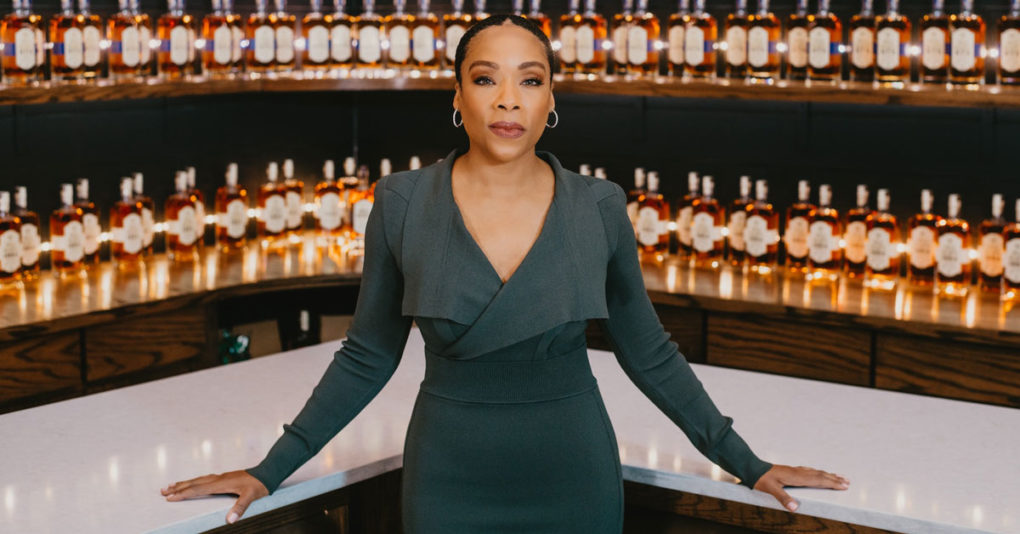 Fast-growing whiskey company Uncle Nearest has launched a unique trade mentorship program, leveraging a brand advocacy strategy its creator said is centered on investing in bartenders and building long-term relationships.
Fast-growing whiskey company Uncle Nearest has launched a unique trade mentorship program, leveraging a brand advocacy strategy its creator said is centered on investing in bartenders and building long-term relationships.
Announced last month, the new program comes from the country’s largest Black-owned distillery, which has been widening its reach across spirit categories with its recent acquisition of Square One Organic Spirits and the purchase of a historic cognac property last year. It’s not the first time founder and CEO Fawn Weaver has threaded mentorship into her rise: the spirits company created an initiative with Jack Daniel’s Tennessee Whiskey to increase leadership diversity in whiskey, as well as the annual Spirits on The Rise conference for minority-owned brands.
The new Raise the Bar Mentorship Alliance, however, is the brainchild of Lucia Creed, head of trade advocacy for Uncle Nearest, who spent years behind the bar herself before working as national ambassador for Campari America’s Women and Whiskies program and later as brand leader for Del Maguey Single Village Mezcal.
Creed’s vision is differentiated from the cocktail competitions or other staples of industry advocacy.
“There are some really great educational programs already, but what I did see was a lack of mentorship programs, and specifically mentorship programs that were open to all demographics, open to people from all over the country, and that were brand sponsored,” she said.
Other mentorship programs in the industry, such as OurWhisky, focus on women, meanwhile The Roots Fund recently expanded its inclusivity program in wine into spirits.
Raise the Bar gives up to 20 working bartenders the opportunity for a six month mentorship based on a personal project, with the opportunity to present the venture to Uncle Nearest leadership and potentially win $10,000 at the end of the program. Goals can be anything from innovations in drink programs or bar culture, to new industry mental health programs, or starting a bar, spirit brand or consultancy. Participants will meet a six-month strategic goal that’s aimed to catapult them into a long-term vision. For now, participants must live in the U.S., but Creed plans to expand internationally in future years.
While apprenticeship has always been foundational to the bar world, many industry veterans shifted careers after the pandemic leaving the current generation of bartenders in the U.S. (counting at 849,000 according to 2022 data from MetrixLab) with less guidance than past generations, said Creed.
“That leads to another challenge, which is just a lack of feeling supported by your community and by others,” she said. “We see that manifesting within the bar community with growing challenges around mental health, and at the end of the day, just not being able to stay in the industry.”
Career growth for bartenders is tricky unless a bar gets a certain amount of press or a bartender can develop a platform on social media, opportunities that become smaller outside of major markets. Without larger financial support from brands, a hotel or a distributor, pursuing independent creative passions isn’t viable, said Creed.
In many cases, the bar industry may lack the traditional professional and financial development tools offered elsewhere. That’s why the program aims to up the skills of the mentors themselves: despite sporting some legendary names, Creed said industry veterans highlighted a lack of education on how to be mentors, prompting her to hire a director of mentor development.
Once applications close in September, that roster of heavy hitters will get to work. The list includes: Karl Franz Williams, who opened the first Harlem speakeasy and owner of Uncle Waithley’s ginger beer; Ivy Mix, co-owner of New York’s Leyenda; Eddie Simeon of Hella Cocktail Co; Chris Cabrera, the first LGBTQ+ ambassador for a major spirits brand, among others. Right now the program has about 10 mentors, and Creed will be reviewing applicants as they come in to identify where to bring in more. Applications are open now until September.
Creed is confident that the program is a long-term strategy to build relationships with the bar community, aligning with a more modern approach of supporting bartenders’ longevity and wellbeing versus mixology education—a focus of many trade education events since the pandemic shone a light on the vulnerability of the industry.
“I really believe that brands have a responsibility to invest in bartenders,” she said. “Bartenders, at the end of the day, are the people who sell your product, and if they aren’t supported in a way that allows them growth and development in the industry, we’re not helping ourselves or anybody else.”